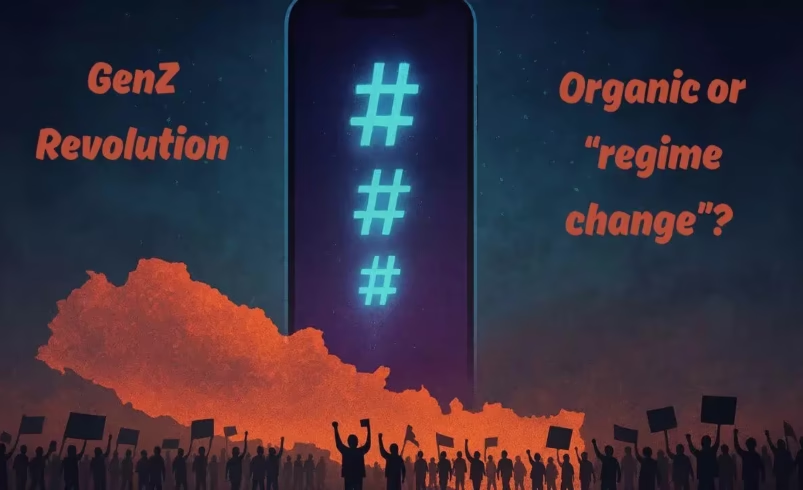Nepal’s Gen Z Protests: Organic Movement or Political Maneuver?
- September 9, 2025
- 0

In recent months, Nepal has witnessed a surge of protests led by Generation Z, raising questions about whether these movements are genuine expressions of public discontent or orchestrated political strategies. The backdrop to these events is reminiscent of the 1971 sentiment expressed by Gil Scott-Heron that revolutions are not always televised. Today, however, they unfold on social media platforms, streamed live and shared widely through hashtags and VPNs. When the Nepalese government attempted to suppress these digital broadcasts, the tech-savvy youth found alternative ways to amplify their voices.
The Role of Social Media in Modern Protests
Social media has become a powerful tool for activism, enabling real-time communication and organization among protestors. In Nepal, platforms like Twitter and Facebook have been instrumental in mobilizing young people and spreading awareness about their causes. This digital revolution allows for rapid dissemination of information, bypassing traditional media channels that may be subject to government control or censorship.
Government Response and Censorship Attempts
The Nepalese government’s attempts to curb the influence of these protests by restricting internet access have only fueled the determination of Gen Z activists. By employing VPNs and other technologies, protestors have managed to circumvent these restrictions, ensuring that their message reaches a global audience. This resilience highlights a generational shift in how political dissent is expressed and managed.
Historical Context and Political Implications
The current unrest in Nepal cannot be viewed in isolation. It follows a history of political instability and power struggles, with the recent ousting of former Prime Minister K.P. Sharma Oli adding another layer of complexity. Some analysts suggest that these protests may be part of a broader strategy to influence political change, while others argue they are a spontaneous reaction to longstanding grievances.
Youth Activism and Its Impact on Democracy
The involvement of young people in political activism is reshaping the democratic landscape in Nepal. Gen Z’s engagement in these protests underscores their desire for a more transparent and accountable government. Their actions challenge traditional power structures and demand a reevaluation of how political change is achieved in the digital age.
Looking Ahead: The Future of Protests in Nepal
As Nepal navigates this period of unrest, the role of Gen Z will likely continue to be pivotal. Their ability to adapt to technological advancements and leverage them for social change sets a precedent for future movements. Whether these protests lead to significant political reform or not, they have already demonstrated the power of youth activism in shaping national discourse.